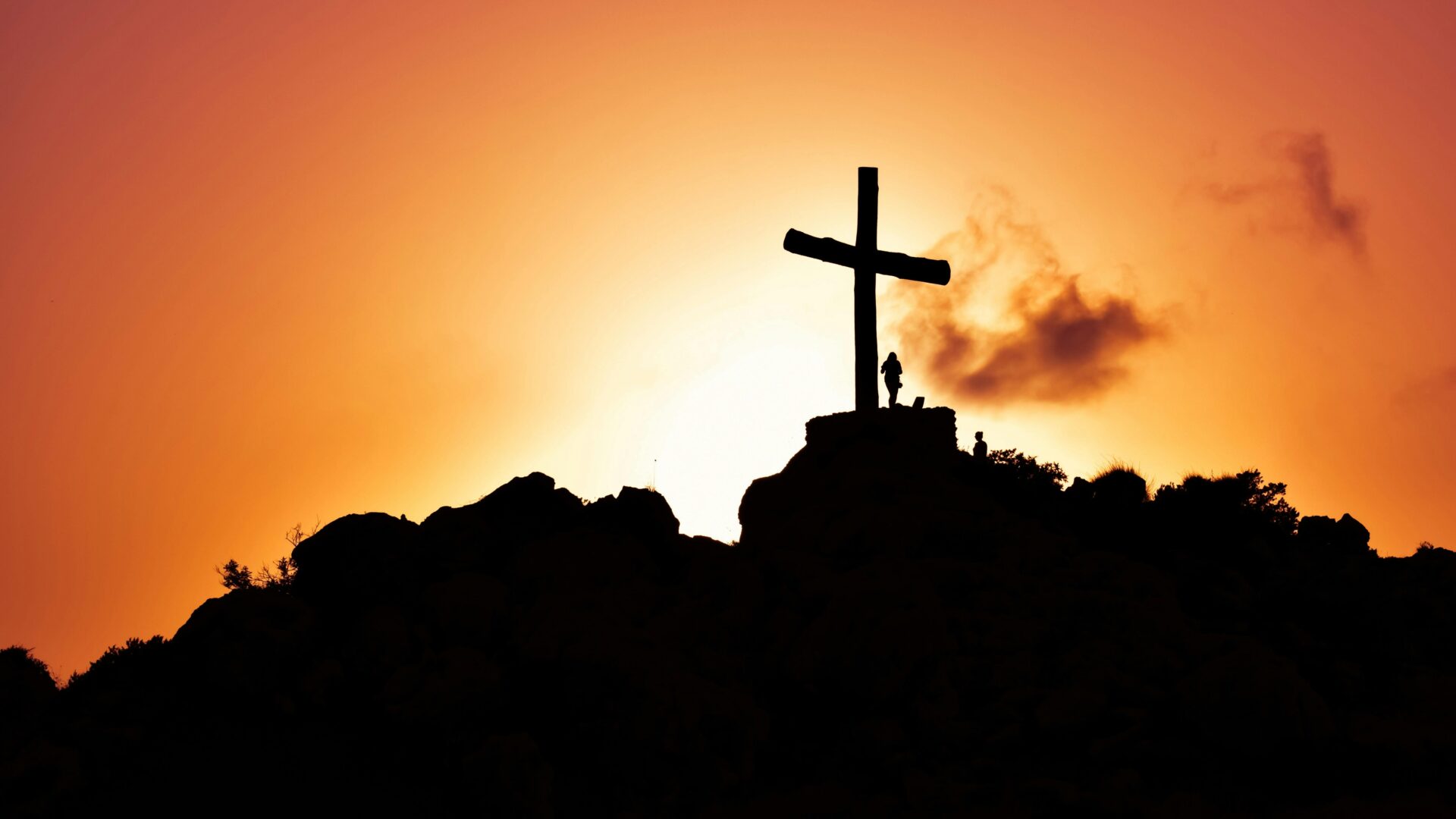
Photograph by Pixabay via Pexels
Remembering Jürgen Moltmann
“My God, where are you?”
With these few words, a career in theology began for a seventeen-year-old German soldier named Jürgen Moltmann. Moltmann recounts these words as the first time he ever spoke to God.
Not particularly religious by upbringing, Moltmann found himself reeling from the experience of “barely surviving” the Allied air raid on Hamburg in July 1943. Called “Operation Gomorrah,” this military action created a firebombing that killed 40,000 people. Moltmann was astonished to have lived through the night, even though a person standing next to him was killed instantly during the air raid. He found himself calling to God and wrestling with why he lived, and others did not. “My God, where are you?”
Two years later, Moltmann was in Scotland at an Allied forces POW camp. The war was ending, and the POWs were shown films of the concentration camps being discovered by Allied forces. Like many German POWs, Moltmann was left cold and disillusioned as he sat in the camp and reflected on the state of things. Then one day, a chaplain gave a Bible to Moltmann, who had never read it until that time in his life.
In the midst of his readings, Moltmann found himself drawn to the death cry of Jesus upon the cross: “My God, why have you forsaken me?”
Moltmann reflects that in this text:
“I knew with certainty: this is someone who understands you…this was the divine brother in distress, who takes the prisoners with him on the way to resurrection. I began to summon up the courage to live again, seized by a great hope…This early fellowship with Jesus, the brother in suffering and the redeemer from guilt, has never left me since.” (1)
Elsewhere, he reflects:
“My experiences of death at the end of the war, the depression into which the guilt of my people plunged me, and the inner perils of utter resignation behind barbed wire: these were the places where my theology was born. They were my first locus theologicus, and at the deepest depths of my soul they have remained so.” (2)
Moltmann spent the rest of life in service to Christian theology, becoming a major influence through his writings from the mid-20th century well into our day. When he died on June 3, 2024, at the age of ninety-eight, he left a legacy of theological reflection and teaching through his lectures and writings that we will continue to read and ponder for years to come.
Through his career, Jürgen Moltmann offered an approach to theology, and, in turn, a glimpse of what life along “the way of Jesus Christ” looks like by his openness to engage unflinchingly with the margins of the world, especially those corners where persons are largely neglected by others who are in power (but really subservient to systems of success, overconsumption, and aggrandizement that drive our world, including this very nation we call our own).
In Moltmann’s writings (and indeed, paralleled in the work of other theologians writing in other global contexts), we discover a follower of Jesus who reminds us that the Godforsaken moment of Christ upon the cross repeats throughout the unfolding of history and indeed, in our own day. The followers of Jesus, however, are not to seek out ways to flee the pain but learn how to stand during the suffering and the often-systemic issues that create that suffering, and resolutely enter the fray.
We are called to seek justice when there is injustice. We are to build peace when some are seduced by war and violence. We are to be a comfort, an advocate, and a sign of grace.
My introduction to Moltmann’s writings came during my studies at Central Baptist Theological Seminary, then in Kansas City, KS. In the classroom of the Rev. Dr. Molly T. Marshall, a Moltmann book was always on the syllabus. Students may have grumbled, but a few of us genuinely looked forward to reading Moltmann for class. Moltmann was particularly helpful to learners, as he wrote several books introducing the depths of Christian doctrine in his “Systematic Contributions to Christian Theology” (3), inviting his students and readers to explore theology, without giving over to the impulse to write works meant to be “final words” on the sum of Christian theology (cf. Thomas Aquinas’ Summa Theologica or Moltmann’s mentor Karl Barth’s Church Dogmatics). A scholar who understood his place in a much wider global Church, Moltmann engaged other theological voices from around the world, seeking the wisdom of those journeying along with him.
After seminary and into pastoral ministry, I kept Moltmann and Molly T. Marshall’s lectures close to mind. I pastored in two blue-collar congregations (one in urban Kansas City, KS, near the seminary and another in rural southwestern Vermont). The bookshelf of Moltmann has accompanied me to every church office or home office I have kept over these past twenty years. And better yet, I keep exploring Moltmann’s thought amid my pastoral work.
Looking back at my personal archive, I noted a Good Friday sermon where I spoke at an ecumenical service where Moltmann’s writing was helpful to share. It was during my time in Bennington, Vermont, a place where rural generational poverty was the text and subtext of much of my pastoral work. The town had multiple challenges, including decades of socioeconomic instability. Our churches served a town of families struggling to make ends meet, at that time during the 2008 economic downturn. The public schools struggled while the nearby Bennington College attracted people for the “elite” educational experience at the edge of town. Most distressingly, Bennington had the highest reported rate of sexual assault in the state of Vermont, according to our local domestic violence agency.
Working within this context, a Good Friday service with several churches joined together made for a suitable time to draw upon theology informed by Moltmann’s thought. So, I shared the above story about Moltmann as a young German conscript and later POW, discovering the possibilities of Christian belief as he tried to pull his life together in the tumult of his country’s descent into warfare and then defeat. I concluded in my sermon with some Moltmann-influenced line of thinking:
We are called to seek justice when there is injustice. We are to build peace when some are seduced by war and violence. We are to be a comfort, an advocate, and a sign of grace. We can only do these things, practice this sort of faith, when we answer the summons to stand between the times of cross and resurrection and encounter the pain of the world in its fullness.
Only when we are attuned shall we hear the rattle of chains holding people down and the cry of the bruised and battered. We must be able to equate our religious narrative of a God vulnerable to the world, who in Christ Jesus lives and dies and is buried, with the realities that we live in a time in need of compassionate persons moving prophetically during an otherwise paralyzing fray.
Then we can prefigure the hope of the rest of our narrative, that indeed, there is new life and abundance. We can be the Church living into faith’s fullest promise, helping a Good Friday world otherwise consigned to a Holy Saturday fate, not just make it, but thrive, in the prospect of a world shaped by Easter’s hope. AMEN.
The Rev. Jerrod H. Hugenot serves as Associate Executive Minister for the American Baptist Churches of New York State.
The views expressed are those of the author and not necessarily those of American Baptist Home Mission Societies.
Sources Cited (All published and available with Fortress Press):
- Moltmann, Jürgen. The Source of Life: The Holy Spirit and the Theology of Life. (Minneapolis, MN: Fortress Press, 1997), p. 5.
- Moltmann, Jürgen. Experiences in Theology: Ways and Forms of Christian Theology. (Minneapolis, MN: Fortress Press, 2000), p. 4.
- The series includes (in English translation): The Trinity and the Kingdom, God in Creation, The Way of Jesus, The Spirit of Life, The Coming of God, and Experiences in Theology.



